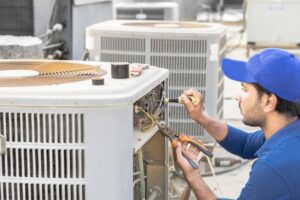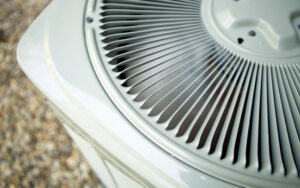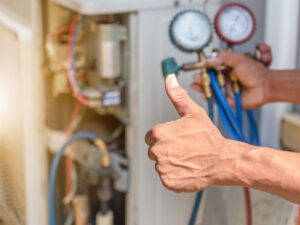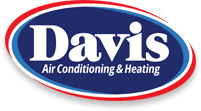What Makes an HVAC System Energy Efficient?
How you use energy in your Oyster Creek, Texas, home affects both your energy bills and the environment. Because your HVAC unit is responsible for a large part of your monthly energy bills and contributes to your carbon footprint, it pays to invest in an energy-efficient system. But what makes a HVAC unit energy efficient?
SEER and AFUE Ratings
The Seasonal Energy Efficiency Ratio (SEER) for air conditioners and the Annual Fuel Utilization Efficiency (AFUE) ratings on furnaces tell you how efficient these units are at using energy. The higher the rating, the less energy gets wasted, and the more of it converts to real heat or cool air. Newer HVAC models have better technology, so it’s no surprise they are overall much more efficient than older models.
Central Heating and Cooling
Central air conditioners and heaters are much more efficient than room air conditioners. They heat and cool the home evenly with much less energy than would be required by several units in separate rooms. The investment might be higher at first, but the savings in the long run are worth it. It really depends on the needs of your home, the climate you live in, and what your home needs are.
Two-Stage Heating
High-efficiency furnaces can use less energy for most of their heat production, switching to a higher stage of power only when necessary. This saves fuel consumption and prevents energy waste. Your home will stay comfortably heated and, when external temperatures get extreme, your heater will switch to the required power level. Furnaces without the two-stage heating feature will run on the same level of energy each time, whether it’s needed or not.
Variable Speed Blower
Variable speed blowers work under a similar concept as two-stage heating. The blower ramps up to a high level only when needed but will run at a lower capacity when high energy isn’t needed. A variable speed blower has an added benefit of helping your air conditioner tackle humidity levels, which in turn helps to keep temperatures lower.
Right Size and Installation
An oversized unit might cool a house very quickly but then shut off without lowering humidity levels, and a unit that is too small will strain to keep up with your needs. Your HVAC contractor should recommend the correct size for your home that will maximize the unit’s efficiency. The location of your unit and the quality of your insulation and ductwork are other important factors to consider.
Electronic Ignition
Furnaces that use gas-powered pilot lights have to keep a fire burning whether the furnace is in use or not. An electronic ignition is a more contemporary upgrade that ignites a flame only when the furnace is in use.
Heat Exchanger
A really energy-efficient model will make use of all available energy. For example, a furnace with a heat exchanger captures escaped gases that would otherwise be vented out of the home. The furnace then uses the gases for more heating power.
Sealed Combustion Chamber
Another energy-saving technology is a sealed combustion feature, which pulls outside air into the unit instead of sourcing indoor air that has already been conditioned. This feature also adds an added measure of safety.
Filter Check Mechanism
A unit connected to a filter check mechanism can simplify your maintenance duties while preventing energy waste and strain. For example, a filter check light will let you know when the filter is dirty and needs changing. A dirty filter can cause your unit to lag or overwork itself, wasting fuel and putting too much pressure on internal parts.
A high-performance HVAC unit can give you years of satisfaction and comfort. If it’s time for you to upgrade your unit and invest in a newer model, you can save yourself several hundred dollars a year. Call Davis Air Conditioning and Heating at 888-710-5530 so we can help you explore the best options and features available on the market.
Image provided by Shutterstock
You May Also Like

Why Getting Same-Day AC Repair Service in Houston Matters
It’s a mild February afternoon in Houston, TX, and your air conditioner suddenly stops blowing cool air. While temperatures hover around 75… Continue Reading Why Getting Same-Day AC Repair Service in Houston Matters…

Need a New HVAC Installation in Richwood, TX? Trust in Carrier
Heating and cooling account for nearly 50% of home energy use, making your HVAC system the hardest-working equipment in your house. When… Continue Reading Need a New HVAC Installation in Richwood, TX? Trust in Carrier…

Is My Heat Pump in Fort Bend, TX, Low On Refrigerant?
Your heat pump hums through the cool January mornings in Fort Bend, TX, but something feels off. The air trickling from your… Continue Reading Is My Heat Pump in Fort Bend, TX, Low On Refrigerant?…
